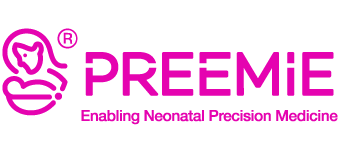Cutting the Risks of Premature Birth

Around half a million babies are born prematurely each year in Europe and that number is increasing.
Where premature birth can’t be prevented, it’s vital that preemies receive adequate nutrition to help prevent health problems. Babies born early often don’t get all the nutrients they need from breast milk alone as it provides less protein, fat, and carbohydrates than they would get through the placenta if they were still in the womb.
‘When we have a very premature baby, nutrition (from breast milk) is not enough so it has to be fortified,’
said Isabel Correa, founder and CEO of a company called Preemie based in London, UK.
Currently, preterm infants are often given breast milk with standard fortification in hospital neonatal units. Doctors typically give babies urine tests to gauge if the supplementation is suitable. But since it isn’t tailored to individual needs or to the specific human milk used, there is a risk of under- or over-fortifying the milk, which could have side effects including renal failure or predisposing the child to obesity.
Correa and her colleagues are developing a system to test the nutritional content of the mother’s milk in a few seconds and calculate the fortification required based on a baby’s needs. It can measure how much protein, fat, lactose, and oligosaccharides – complex sugars – are found in breast milk – as well as freshness, or the age of the milk in days.
“We are working towards enabling neonatal ICU (intensive care unit) professionals to perform a quick and reliable analysis of a small amount of breast milk, thus providing better individualised fortification for preterm babies,”
said Professor Enrico Bertino, a professor and director of the Neonatal Care Unit at the University of Turin in Italy, who is involved with a study of the Preemie device.
To read the full article, visit: https://horizon-magazine.eu/article/cutting-risks-premature-birth.html

